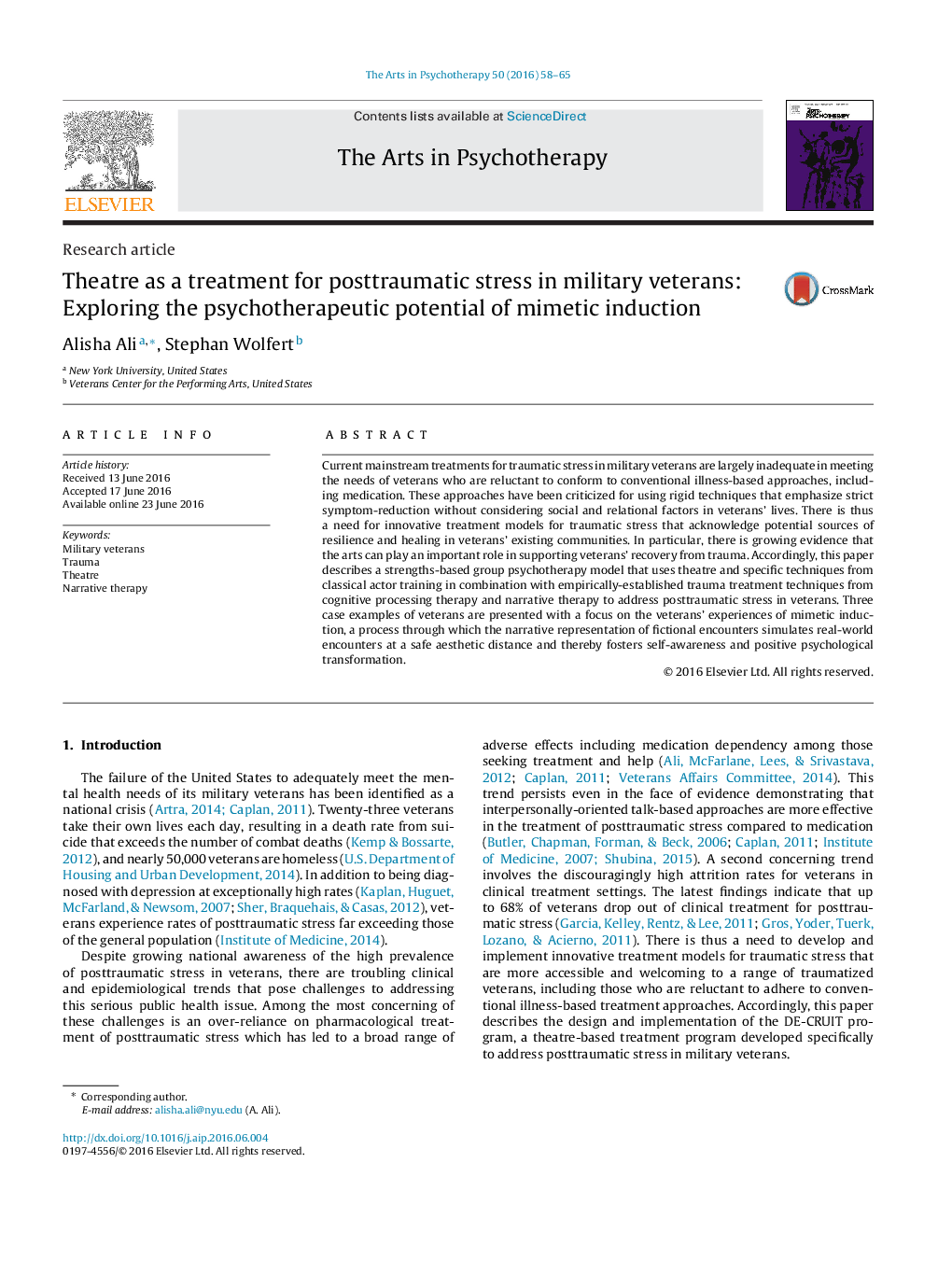| کد مقاله | کد نشریه | سال انتشار | مقاله انگلیسی | نسخه تمام متن |
|---|---|---|---|---|
| 343529 | 617179 | 2016 | 8 صفحه PDF | دانلود رایگان |
• The need for alternative treatments for traumatic stress in veterans is reviewed.
• Therapeutic effects of theatre are described using a theory of mimetic induction.
• The DE-CRUIT program combines theatre and psychotherapy to treat trauma in veterans.
• Three case examples of veterans are presented to illustrate the DE-CRUIT program.
Current mainstream treatments for traumatic stress in military veterans are largely inadequate in meeting the needs of veterans who are reluctant to conform to conventional illness-based approaches, including medication. These approaches have been criticized for using rigid techniques that emphasize strict symptom-reduction without considering social and relational factors in veterans’ lives. There is thus a need for innovative treatment models for traumatic stress that acknowledge potential sources of resilience and healing in veterans’ existing communities. In particular, there is growing evidence that the arts can play an important role in supporting veterans’ recovery from trauma. Accordingly, this paper describes a strengths-based group psychotherapy model that uses theatre and specific techniques from classical actor training in combination with empirically-established trauma treatment techniques from cognitive processing therapy and narrative therapy to address posttraumatic stress in veterans. Three case examples of veterans are presented with a focus on the veterans’ experiences of mimetic induction, a process through which the narrative representation of fictional encounters simulates real-world encounters at a safe aesthetic distance and thereby fosters self-awareness and positive psychological transformation.
Journal: The Arts in Psychotherapy - Volume 50, September 2016, Pages 58–65
